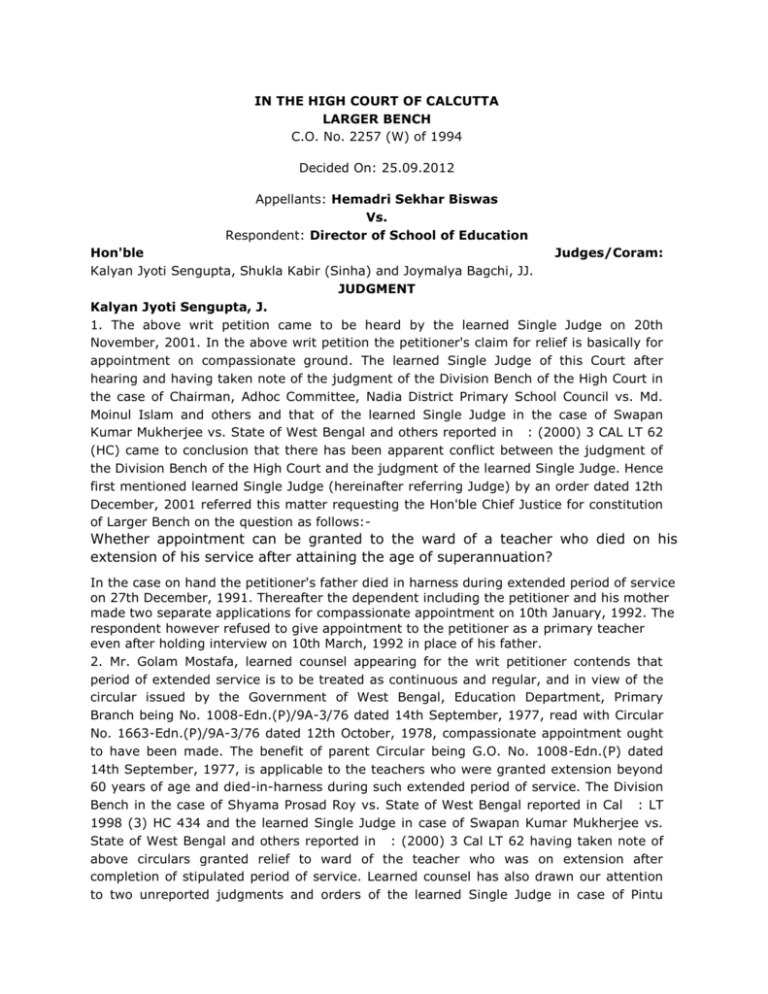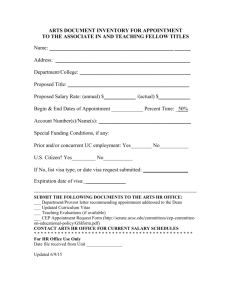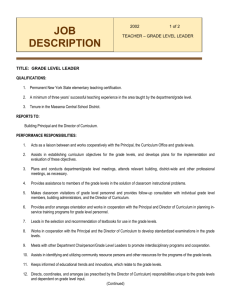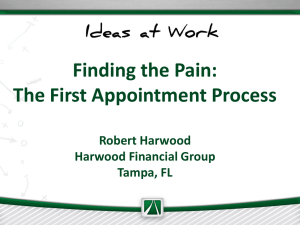C.O. No. 2257 (W) of 1994
advertisement

IN THE HIGH COURT OF CALCUTTA LARGER BENCH C.O. No. 2257 (W) of 1994 Decided On: 25.09.2012 Appellants: Hemadri Sekhar Biswas Vs. Respondent: Director of School of Education Hon'ble Judges/Coram: Kalyan Jyoti Sengupta, Shukla Kabir (Sinha) and Joymalya Bagchi, JJ. JUDGMENT Kalyan Jyoti Sengupta, J. 1. The above writ petition came to be heard by the learned Single Judge on 20th November, 2001. In the above writ petition the petitioner's claim for relief is basically for appointment on compassionate ground. The learned Single Judge of this Court after hearing and having taken note of the judgment of the Division Bench of the High Court in the case of Chairman, Adhoc Committee, Nadia District Primary School Council vs. Md. Moinul Islam and others and that of the learned Single Judge in the case of Swapan Kumar Mukherjee vs. State of West Bengal and others reported in : (2000) 3 CAL LT 62 (HC) came to conclusion that there has been apparent conflict between the judgment of the Division Bench of the High Court and the judgment of the learned Single Judge. Hence first mentioned learned Single Judge (hereinafter referring Judge) by an order dated 12th December, 2001 referred this matter requesting the Hon'ble Chief Justice for constitution of Larger Bench on the question as follows:- Whether appointment can be granted to the ward of a teacher who died on his extension of his service after attaining the age of superannuation? In the case on hand the petitioner's father died in harness during extended period of service on 27th December, 1991. Thereafter the dependent including the petitioner and his mother made two separate applications for compassionate appointment on 10th January, 1992. The respondent however refused to give appointment to the petitioner as a primary teacher even after holding interview on 10th March, 1992 in place of his father. 2. Mr. Golam Mostafa, learned counsel appearing for the writ petitioner contends that period of extended service is to be treated as continuous and regular, and in view of the circular issued by the Government of West Bengal, Education Department, Primary Branch being No. 1008-Edn.(P)/9A-3/76 dated 14th September, 1977, read with Circular No. 1663-Edn.(P)/9A-3/76 dated 12th October, 1978, compassionate appointment ought to have been made. The benefit of parent Circular being G.O. No. 1008-Edn.(P) dated 14th September, 1977, is applicable to the teachers who were granted extension beyond 60 years of age and died-in-harness during such extended period of service. The Division Bench in the case of Shyama Prosad Roy vs. State of West Bengal reported in Cal : LT 1998 (3) HC 434 and the learned Single Judge in case of Swapan Kumar Mukherjee vs. State of West Bengal and others reported in : (2000) 3 Cal LT 62 having taken note of above circulars granted relief to ward of the teacher who was on extension after completion of stipulated period of service. Learned counsel has also drawn our attention to two unreported judgments and orders of the learned Single Judge in case of Pintu Kumar Chatterjee vs. State of West Bengal (without having number of the matter) and also in case of Ashok Kumar Khan vs. Director of School Education, [WP 11723 (W) of 2001] wherein similar relief was granted to the wards of the deceased primary teachers treating extended period as being continuity of service period. 3. He further contends that now it has become settled position of law if any employee after having attained normal retirement age continues to serve on extension by a valid order of the department on the same terms and conditions his services shall be treated to be continuity in service in all respects. Hence, during this period if he dies the situation would be death in harness, under the scheme or rules framed by the Government eligible ward is entitled for appointment. 4. Learned counsel, Mr. Maloy Chakraborty appearing for the State respondent submits that in the instant case the son being the writ petitioner applied for the compassionate appointment on 10th January, 1992. The Government of West Bengal by and under Rule 14 of the Recruitment Rules for Primary Teachers provides for compassionate appointment and such appointment shall be given in a case when the teacher concerned dies-in-harness before attaining superannuation age of 60 years and further leaving his family which in the opinion of the Government shall be in extreme economic hardship. The Rule 2P postulates expression of the word "superannuation" which means completion of 60 years of age. 5. He contends with the support of a Supreme Court Judgment in case of State Bank of India vs. Jaspal Kaur reported in : (2007) 9 SCC 571 that the Rule makes it clear that the age of superannuation namely 60 years or 65 years age at present has correlation with the appointment on compassionate ground. Appointment in case of compassionate ground can only be considered if the ward of the deceased teacher having requisite qualification applies to the authority concerned immediately after death of the employee who has not attained superannuation age. 6. He thence placing reliance on the Supreme Court judgment in case of State Bank of India & another vs. Somvir Singh reported in : (2007) 4 SCC 778 submits that claim of compassionate appointment, if any, is traceable only in the scheme, executive instruction, rules etc. framed by the employer. No one can claim as a matter of right except as provided in the Rule and Scheme. Thereafter, he contends that compassionate appointment cannot be granted after a lapse of considerable period. 7. We have heard the respective contentions of the learned counsel for the parties and we have taken note of the judgment of the Division Bench and that of Single Benches reported and unreported cited before us. There is no dispute that there has been provision for extension of service even after attaining age of 60 years. Admittedly, extension was granted to the father of the petitioners, and its legal implication is the moot question to be considered and decided by this Court. It appears from Circular dated 14th September, 1977 bearing No. 1008- Edn.(P)/9A-3/76 as follows: Wards of teacher of Primary School who dies in harness may be given appointment to the post of Primary School teacher against suitable vacancy provided they fulfill qualifications for such appointment. Again by a Circular dated 12th October, 1978 bearing No. 1663-Edn.(P V9A-3/76 the Directorate was empowered to consider the teacher on extensional service as being regular service. It is also clarified expressly by this Circular, that there should not arise any question of non-implementation of G.O. No. 1008-Edn.(P) dated 14th September, 1977. Thus combined reading of aforesaid two circulars make clear that all benefits admissible to regular teacher, is also extended to the teacher who are on extension. According to us all the benefits include the right to be considered for compassionate appointment on death in harness to the ward. 8. The decisions either of the Division Bench or of learned Single Judge cited before us by the learned counsel for the appellant have nowhere decided this question. However in the unreported one the learned Single Judge explained the meaning of the word "extension" that continuation of the same status without employing thought of break, unlike reemployment. If this continuity in services has taken place obviously the age of retirement as fixed ordinarily cannot be applied and it appears from the records that on extended period of service the retirement age has been fixed later than ordinary date of retirement as mentioned in Rule as being 60 years or at present (65 years). But the Rule provides for extension and once it is granted the benefit of compassionate appointment in fit case should also be granted. We find substance in the argument of Mr. Chakraborty that the scheme of the Rules providing for compassionate appointment which were in vogue at the time of making application should be considered. In this case we notice that long before framing the said Rules the application was made but the same was not considered applying the same. 9. The decisions cited by Mr. Chakraborty, of the Supreme Court has laid down amongst others for applying the norms for granting appointment on compassionate ground. The above two judgments laid down the law that the appointment should not be made as a matter of course, but to achieve the object of bailing out the family from penury which has befallen because of sudden death of the employee concerned. We however record object issue is beyond the scope of reference. 10. We respectfully accept the legal principle laid down by the Supreme Court that the scheme prevailing at the time of making application for compassionate appointment should be considered and not that prevailing on the date of decision of the Court. Mr. Chakraborty has shown us the Recruitment Rules dated 22nd November, 1991 framed in exercise of power conferred by sub-section (1) of section 106 of the West Bengal Primary Education Act 1973. In Rule 2 Clause (p) the definition of superannuation has been mentioned as being the date on which an employee completes of sixtieth years of his age. Rule 14 of the above Rule provides for appointment on compassionate ground on the norms laid down therein. It is mentioned that when a teacher dies-in-harness before date of his superannuation rules for compassionate appointment is applicable. We think that the definition of "superannuation" is not synonymous with the date of superannuation ordinarily fixed. The date of superannuation in case of extension obviously stands postponed, and the same cannot be applied on completion of sixtieth years of age. On extension of service the date of superannuation stands extended from initial date that would have been applied had there been no extension of service. In our considered view Rule 14 does not militate against the concept of extension on the question of benefit of compassionate appointment in case of a teacher who dies-in-harness on extended period of service. 11. In Shyama Prosad Roy vs. State of West Bengal reported in : CAL LT 1998 (3) HC 434 taking note of an unreported decision in case of Subrata Sekhar Samanta vs. State of West Bengal this Court while interpreting the Rule 4A has held in paragraph 10 of the report of Calcutta High Court Notes held as follows;- 10. On a careful reading of Rule 4A, it is gathered that the Board after found a teacher fit for service can direct him extension for a further period of one year and thereafter extend year to year till he completed 65 years provided he is found physically fit and mentally alert. The explanation is explicitly clear without any ambiguity that the teacher who had been serving on extension shall get other service benefit with the approval of the Government. The grammatical meaning of the word 'extension' is that by which something is extended; prolonged therefore, there could be hardly any doubt that the expression of 'extension' is nothing but a continuation of service. The explanation has also made further clear that the teacher working during the period of extension shall get all those benefits as that is available to a teacher who has yet to complete 60 years. 12. We approve of the aforesaid conclusion and we hold that having regard to the language mentioned in the Rule 4A and also Rule 14 framed under 1991 Rules the ward of a deceased teacher who was an extended period of service and died during this period of extension is also entitled to be considered. We however of the opinion that our above decision of law will not be applicable if any application for compassionate appointment is made after 1991 Rules which by operation of Rule 35 of 1991 repeal Rule 4(A) of 1940 in view of Rule 27 of 1991 Rules. We however add that such compassionate appointment may not be as a matter of course and this can be granted on the condition being fulfilled under the scheme as it was prevailing on the date of making application as the Supreme Court as quoted above has ruled so. Thus the matter is disposed of. Now we request the learned Single Judge to dispose of the writ petition having taken note of this decision on the point referred above in accordance with law at an early date. Shukla Kabir (Sinha), J. I agree. Joymalya Bagchi, J. I agree.







